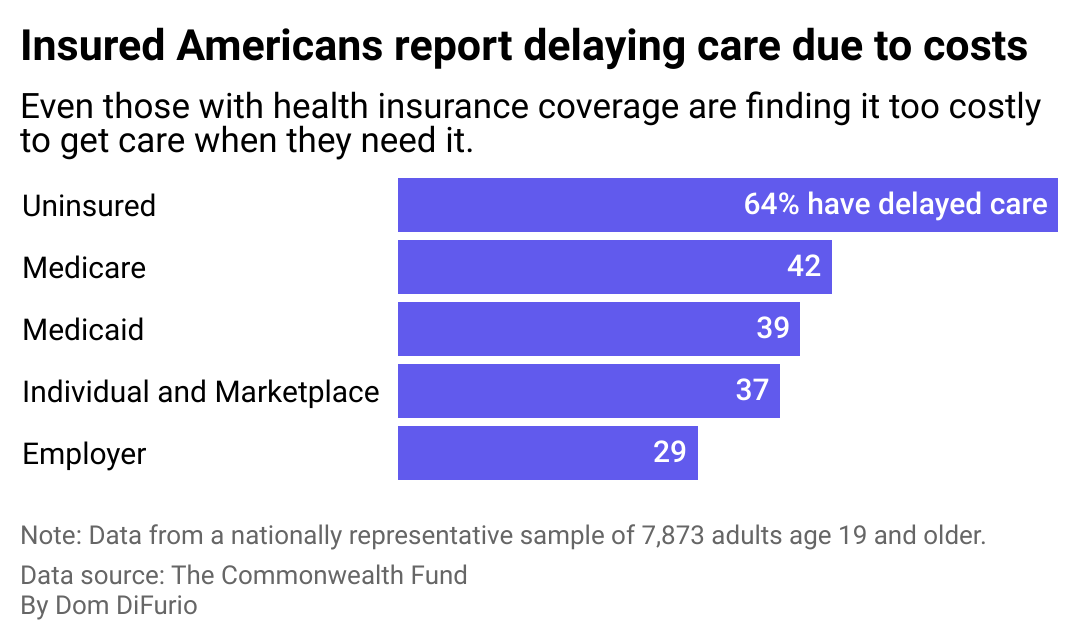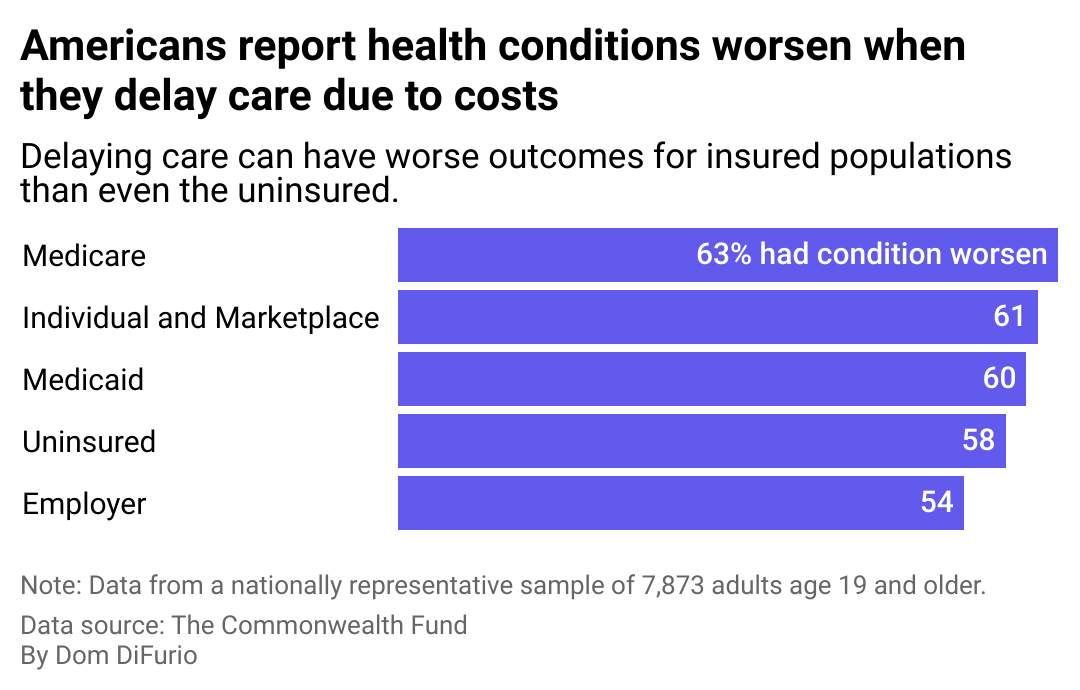
[ad_1]
QMedic analyzed Commonwealth Fund survey data to illustrate how higher health care costs are hurting Americans, particularly Medicare recipients.
– Max Acronym // Shutterstock
Dom DiFurio
Americans are forking out more money than ever for their health care. For a significant number of the most vulnerable seniors and Americans with disabilities across the country, those high costs are causing them to postpone care.
QMedic analyzed data from the Commonwealth Fund’s 2023 Health Care Affordability Survey to illustrate how many Americans are putting off health care due to cost. The annual survey is based on responses from nearly 8,000 American adults representative of the U.S. population.
Americans are struggling to afford health care costs across the board, regardless of insurance type. Half of all working adults surveyed by the Commonwealth Fund reported that it was “very or somewhat difficult to afford their health care” costs, including those with employer-sponsored health insurance.
But for Medicare recipients, who are typically older, have more health conditions, and often live on fixed incomes, the challenge is even more acute.
Medicare provided health insurance to more than 66 million Americans who live with disabilities or are ages 65 and over this year, according to the Centers for Medicare & Medicaid Services. These Americans are spending roughly 53% more for their health care than they were a decade ago, according to KFF. In 2022, households utilizing Medicare spent an average of $7,000 annually on health care costs, up from $4,600 in 2013.
Like with other goods and services, the record inflation seen from 2020 to 2022 impacted health care costs. The COVID-19 pandemic also had an influence on the rising cost of care, stretching hospital resources thin and introducing more long-term illness into the population for those living with long COVID.
![]()

QMedic
Unaffordability of care hitting Medicare recipients hardest among insured groups
Nearly 2 in 3 Americans without any form of insurance reported delaying some kind of care because they couldn’t afford it.
Those with insurance were less likely to delay care, but a significant number still reported having to delay because their health insurance doesn’t adequately cover the costs, and they can’t afford to pay out of pocket for the remainder. Americans with employee-sponsored health plans were least likely to delay necessary health care in 2023.
According to the report, having to put off health care and a worsening of symptoms often goes hand in hand.

QMedic
Inability to pay could lead to higher costs down the road
Among Americans who have delayed care due to cost, about 3 out of every 5 Medicare recipients said it led to them getting sicker, a greater share than even those without insurance.
Medicare enrollees surveyed by the Commonwealth Fund reported putting off not only procedures and consultations but also needed prescription drugs that they couldn’t afford. Congress has taken some action in the last few years to tackle stubbornly high costs for health care.
The Inflation Reduction Act contains measures that have capped the costs that pharmaceutical companies can charge Medicare patients for prescription drugs. This provision in the law, which went into effect in 2024, could considerably increase affordability for Medicare beneficiaries going forward.
Story editing by Shannon Luders-Manuel. Copy editing by Tim Bruns.
This story originally appeared on QMedic and was produced and
distributed in partnership with Stacker Studio.
[ad_2]
Source link






